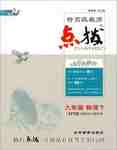题目内容
“Our aim is to take our art to the world and make people understand what it is to move,” said David Belle, the cofounder of parkour (跑酷).
Do you love running? It is a good exercise, yet many people find it boring. But what if making your morning jog a creative one?Like jumping from walls and over gaps and ground rolls? Just like the James Bond in the movie Casino Royale? Bond jumps down from a roof to a windowsill and then runs several blocks over obstacles on the way. It is just because of Bond's wonderful performances that the sport has become popular worldwide.
Yes, that's parkour, an extreme street sport aimed at moving from one point to another as quickly as possible, getting over all the obstacles in the path using only the abilities of the human body. Parkour is considered an extreme sport. As its participants dash around a city, they may jump over fences, run up walls and even move from rooftop to rooftop.
Parkour can be just as exciting and charming as it sounds,but its participants see parkour much more than that.
Overcoming all the obstacles on the course and in life is part of the philosophy (哲理) behind parkour. This is the same as life. You must determine your destination, go straight, and jump over all the barriers as if in parkour and never fall back from them in your life, to reach the destination successfully. A parkour lover said,“I love parkour because its philosophy has become my life, my way to do everything.”
Another philosophy we've learnt from parkour is freedom. It can be done by anyone, at any time, anywhere in the world. It is a kind of expression of trust in yourself that you earn energy and confidence.
小题1:Parkour has become popular throughout the world because of ________.
小题2:The underlined word “obstacles” in Paragraph 2 is closest in meaning to “________”.
小题3:Which of the following is TRUE of parkour?
小题4:Which of the following is the philosophy of parkour?
Do you love running? It is a good exercise, yet many people find it boring. But what if making your morning jog a creative one?Like jumping from walls and over gaps and ground rolls? Just like the James Bond in the movie Casino Royale? Bond jumps down from a roof to a windowsill and then runs several blocks over obstacles on the way. It is just because of Bond's wonderful performances that the sport has become popular worldwide.
Yes, that's parkour, an extreme street sport aimed at moving from one point to another as quickly as possible, getting over all the obstacles in the path using only the abilities of the human body. Parkour is considered an extreme sport. As its participants dash around a city, they may jump over fences, run up walls and even move from rooftop to rooftop.
Parkour can be just as exciting and charming as it sounds,but its participants see parkour much more than that.
Overcoming all the obstacles on the course and in life is part of the philosophy (哲理) behind parkour. This is the same as life. You must determine your destination, go straight, and jump over all the barriers as if in parkour and never fall back from them in your life, to reach the destination successfully. A parkour lover said,“I love parkour because its philosophy has become my life, my way to do everything.”
Another philosophy we've learnt from parkour is freedom. It can be done by anyone, at any time, anywhere in the world. It is a kind of expression of trust in yourself that you earn energy and confidence.
小题1:Parkour has become popular throughout the world because of ________.
| A.its cofounder, David Belle |
| B.the film, Casino Royale |
| C.its risks and tricks |
| D.the varieties of participants |
| A.streets | B.objects | C.barriers | D.roofs |
| A.It challenges human abilities. |
| B.It is a good but boring sport. |
| C.It needs special training. |
| D.It is a team sport. |
| A.Sports and extremes. |
| B.Excitement and popularity. |
| C.Dreams and success. |
| D.Determination and freedom. |
小题1:B
小题2:C
小题3:A
小题4:D
试题分析:本文讲述的是一项受人欢迎的运动parkour,介绍了这些运动的由来以及特点和背后所暗含的哲理。
小题1:B 细节题。根据文章第二段后3行Like jumping from walls and over gaps and ground rolls? Just like the James Bond in the movie Casino Royale? Bond jumps down from a roof to a windowsill and then runs several blocks over obstacles on the way. It is just because of Bond's wonderful performances that the sport has become popular worldwide.可知parkour的流行主要是因为邦德的电影。故B正确。
小题2:C 推理题。根据本句Bond jumps down from a roof to a windowsill and then runs several blocks over obstacles on the way.可知Bond越过了路上的障碍物,该词是指障碍物的意思。故C正确。
小题3:A 推理题。根据文章倒数第二段第一句Parkour can be just as exciting and charming as it sounds,but its participants see parkour much more than that.可知这项运动能够让挑战人类的能力,让我们克服存在的困难。实现自己的目标。故A在且。
小题4:D 细节题。根据文章倒数第二段Overcoming all the obstacles on the course and in life is part of the philosophy (哲理) behind parkour. This is the same as life. You must determine your destination, go straight, and jump over all the barriers as if in parkour and never fall back from them in your life, to reach the destination successfully.可知决心和自由是存在与这项运动背后的事物。故D正确。
点评:本文讲述的是一项受人欢迎的运动parkour,介绍了这些运动的由来以及特点和背后所暗含的哲理。
本文主旨鲜明,很容易在文中找到答案。做题时要注意文章的首段和每一段的首句或尾句,因为它们往往就是文章的主题句。阅读中要注意要点之间的关系。然后带着问题,再读全文,找出答题所需要的依据,完成阅读任务。

练习册系列答案
 特高级教师点拨系列答案
特高级教师点拨系列答案
相关题目